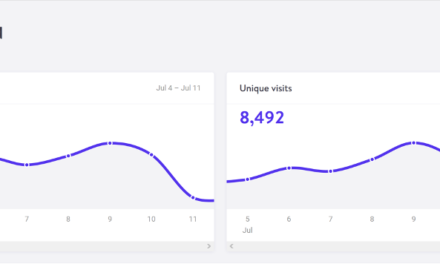Drink up.
For most people who menstruate, getting your period on vacation is bound to happen at some point. You may prep by packing just the right amount of tampons and pads, but then end up getting it a few days later than expected. What gives? Well, if you’ve traveled across time zones, your internal “menstrual clock” can actually get thrown off. But how long jet lag can delay your period? That’s a whole other question.
You may be thinking: How is this even a thing?! But it’s true. Any significant disruption to your usual daily rhythm can lead to changes in your cycle, explains Charis Chambers, MD, an OB/GYN and Midol partner also known as “The Period Doctor.” And as far as your body is concerned, flying off to a different time zone *definitely* counts as a disruption.
Read on to learn how late your period can be from jet lag, plus other tips for traveling while menstruating—including when to take your birth control.
Why jet lag and travel can delay your period
A lot of the menstrual changes that happen while traveling come down to your circadian rhythm—the internal clock in charge of physical, mental, and behavioral changes the body goes through over a 24-hour period, largely driven by exposure to light and darkness. “It sets the tempo and tone for your body,” Dr. Chambers says.
That includes determining when different hormones should be released, like melatonin to make you feel sleepy. It also regulates hormones in charge of ovulation—like luteinizing hormone and follicle-stimulating hormone, according to March 2010 research in the International Journal of Endocrinology.
Your internal clock is synced to the rhythm of your original time zone. So when you fly to a new one, that clock temporarily gets thrown off, explains the Mayo Clinic. That can lead to small, but measurable, changes to your ovulatory hormones, especially if the travel causes your sleep to get disrupted. Getting less than 8 hours of sleep, for instance, can decrease follicle-stimulating hormone secretions by around 20 percent, the International Journal of Endocrinology study noted.
Jet lag (and the sleep disruptions that come with it) also tends to leave you feeling groggy in general. Pair brain fog with being in a new place, and you have a recipe for heightened levels of stress, which can also throw off your period, Dr. Chambers notes.
Birth control can factor in, too. If you take the pill, missing just one dose (which can definitely happen amidst travel chaos!) can shift your cycle, according to Planned Parenthood. You may also take it at different times from what your body’s used to, which can throw off your cycle. (More on this later.)
How long does jet lag delay your period?
Because everyone’s body and menstrual cycle is so different, it’s hard to say for sure how long you can expect a delay. The more time zones you hop through, however, the more intense your jet lag will likely be, per the Mayo Clinic.
As for how exactly that’ll affect your period? “Because the menstrual cycle is influenced by hormonal rhythms that can be disrupted by circadian misalignment, it is reasonable to expect that menstrual irregularities may begin to resolve as circadian rhythms stabilize,” Dr. Chambers says.
In other words, your period-regulating hormones should start to adjust in line with your sleep. Depending how long that takes, it could take a month or two for your cycle to totally get back to normal, Dr. Chambers adds.
This type of period delay is not really cause for concern. It’s typically harmless and will re-stabilize once you’re back in your original time zone or once your sleep levels out. However, if you’ve missed your period for several months, or have other symptoms like pain, it might be best to reach out to your doctor.
Birth control timing while traveling to different time zones
We talked about how changes to your usual birth control routine can lead to changes with your period. To keep your cycle consistent and make sure you’re continuing to reap the benefits of the pill, “it is critical to minimize disruptions to the dosing schedule,” Dr. Chambers says.
Here’s her advice for how to do that:
- For short trips or trips where the time change is just an hour or two: Keep the same schedule you use at home and don’t adjust for the new time. For example, if you normally take your pill at 9 p.m. and you’re traveling somewhere that’s an hour behind, take it at 8 p.m. local time (which is still 9 p.m. home time).
- For longer trips or trips where the time change is three hours or more: Adjust your dosing schedule by 1 to 2 hours per day until it aligns with the new time zone. If you normally take your pill at 8 a.m. and you’re traveling somewhere that’s three hours ahead, take it at 11 a.m. local time the first day (which is still 8 a.m. home time), 10 a.m. local time the second day, 9 a.m. local time the third day, and 8 a.m. local time the fourth day. (Keep in mind, you may still experience some breakthrough bleeding or a delay in your period with this method.)
A few other things to keep in mind that may help:
- Set an alarm or a reminder on your phone to take your pill, even if you don’t do that at home. It’s easier to forget to take birth control on vacation because you’re off your usual routine.
- Bring along an extra pack of pills in your carry-on in case you run into any travel delays or your checked bag gets lost.
- If you miss a dose or take it late, use back-up contraception for seven days to protect yourself against unplanned pregnancy.
Tips for managing your period while traveling
While it may be a bit annoying, traveling with your period is totally doable. In fact, there are a few extra steps you can take to help you feel your best on your trip. This includes:
- Staying hydrated. Bring along your refillable water bottle and sip throughout the day. Drinking enough H2O reduces bloating and boosts your energy, per the Mayo Clinic.
- Reaching for wholesome foods as much as you can. Think whole grains, fruits, veggies, lean proteins, and healthy fats. And we know it’s hard while on vacation, but reducing alcohol, caffeine, refined sugar, and fatty foods can help cut down on PMS symptoms, per the American College of Obstetricians and Gynecologists (ACOG).
- Not letting sleep fall by the wayside. Trying to get back on a quality sleep schedule can keep fatigue and moodiness in check, while helping you cope with any travel-related stress.
- Getting some movement every day. Aim for at least 30 minutes every day, the ACOG recommends. While on vacation, this can look taking a walking tour, exploring a new neighborhood on foot or on a bike, or going for a swim at the beach or pool.
- Bringing along a supplement. Magnesium‘s a great one for managing bloating, moodiness, and breast tenderness, the ACOG notes. Dr. Chambers is a fan of Midol Peace Out PMS, which uses chasteberry extract, ginger, and valerian extract—all of which are thought to help reduce PMS symptoms.
The bottom line
Jet lag can do a number on your body while traveling (even though it’s so worth it for Euro summer vacations!). This includes changes and delays in your menstrual cycle, especially when you’re in a different time zone.
Fortunately, period delays from jet lag are harmless and your body should acclimate within a couple days. Just make sure you’re staying on a consistent schedule with your BC pills (if you do take them) to avoid period changes and get the best protection against pregnancy.
Recommended Story For You :

The alpine secret for healthy weight loss

The Most Potent Fast-Acting Formula For Incinerating Stubborn Fat

Real Cortexi Users Real Life‑Changing Results

This Cold Drink Might Trigger Your Prostate

Red Boost is a powerful new formula for boosting male sexual health.

Everything you eat or drink eventually reaches your liver for processing.

Brand New Probiotics Specially Designed For The Health Of Your Teeth And Gums

Empowering You to Take Control of Your Blood Sugar Health!

Scientists Finally Discover the Root Cause of Belly Fat and Unexplained Weight Gain







